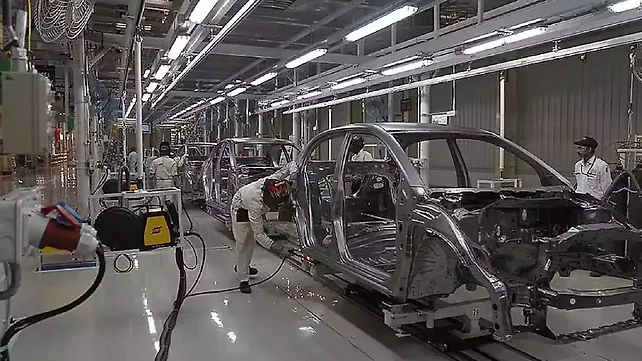
The increasing need for electric vehicle (EV) manufacturing is expected to drive significant growth for Rockwell Automation, as it aims to increase its share from the automobile sector, which is a part of the discreet sector, to 20% of its overall revenues in the near future.
In an interaction with Mobility Outlook, Arvind Kakru, Director, Rockwell Automation said the automobile industry as a whole “including EV battery manufacturing, vehicles manufacturing, tyre manufacturing, and more allied activities” will adapt to automation at a larger scale in times to come.
Among OEMs, the company expects future growth of automation to be led by commercial and passenger vehicle manufacturers. Rockwell Automation is already working with Volvo-Eicher and Daimler, Kakru said. “The bigger opportunity we see is in PV manufacturing. The ICE market is one of the biggest markets for automation at the moment,” Kakru said.
Notably, the company globally reported revenue figures of $7.76 billion for FY22 (October 2021 to September 2022).
ICE, EVs, & Batteries
In addition to automation in EV and battery manufacturing, the company is confident that even traditional internal combustion engine OEMs will resort to more automation as the demand for vehicles keeps going north. It must be noted here that November 2022 reported the highest-ever vehicle sales in India.
Additionally, Kakru is certain that the recently announced PLI schemes around vehicle and battery manufacturing will further require the OEMs to assure maximum output in minimum time.
“Start-ups, traditional OEMs, battery makers, tyre makers, and more are turning towards automation to minimise downtime in order to keep up with the rising demand,” Kakru explained.
He further stated that investments taking place in the auto industry are “definitely bigger than most other industries at the moment”. Some, he said, are being driven by the evolution of mobility mediums, while others are being driven by mandates announced by the government of India.
Start-ups including Ola and Ather, and traditional OEMs including Tata Motors, Maruti Suzuki, Mahindra & Mahindra have already announced plans to set up separate facilities for manufacturing EVs. Additionally, tyre makers have also announced mammoth investments for expanding their manufacturing capabilities.
Advantages OEMs See
The biggest advantage OEMs associate with automation is the capability of being able to deliver “ahead of time”, Kakru said. In the same manner, start-ups associate automation as a tool to faster scale-up.
“One of the most difficult phases for a start-up is when the time to scale-up arrives,” he said referring to reports pointing towards less availability of EVs and higher demand in the Indian market.
Cost competitiveness is the second trait of automation that OEMs usually relate to, Kakru said. “Technology can help reduce the overall weight of a vehicle, and a lot of other things, while automation can help produce more vehicles than the conventional approach in limited time,” he said.
Further, automation allows OEMs to benefit from better forecast of what components it will need in the future, including an improvement in the overall supply chain.
In Conclusion
The growth potential notwithstanding, automating legacy machines OEMs are using at the moment will pose a challenge for the industry, Kakru said and believes automation players will need to work with organisations that originally manufactured these machines in order to automate them.
Headquartered in Milwaukee in the United States, Rockwell Automation has its third-largest workforce located in India, and the company also serves Nepal, Bangladesh, Sri Lanka regions from its India offices.
Also Read
Benefits Of AI, ML, Simulation Outweigh Investment Cost
Construction Equipment Industry: Most Selective On Automation & Electric Powertrain